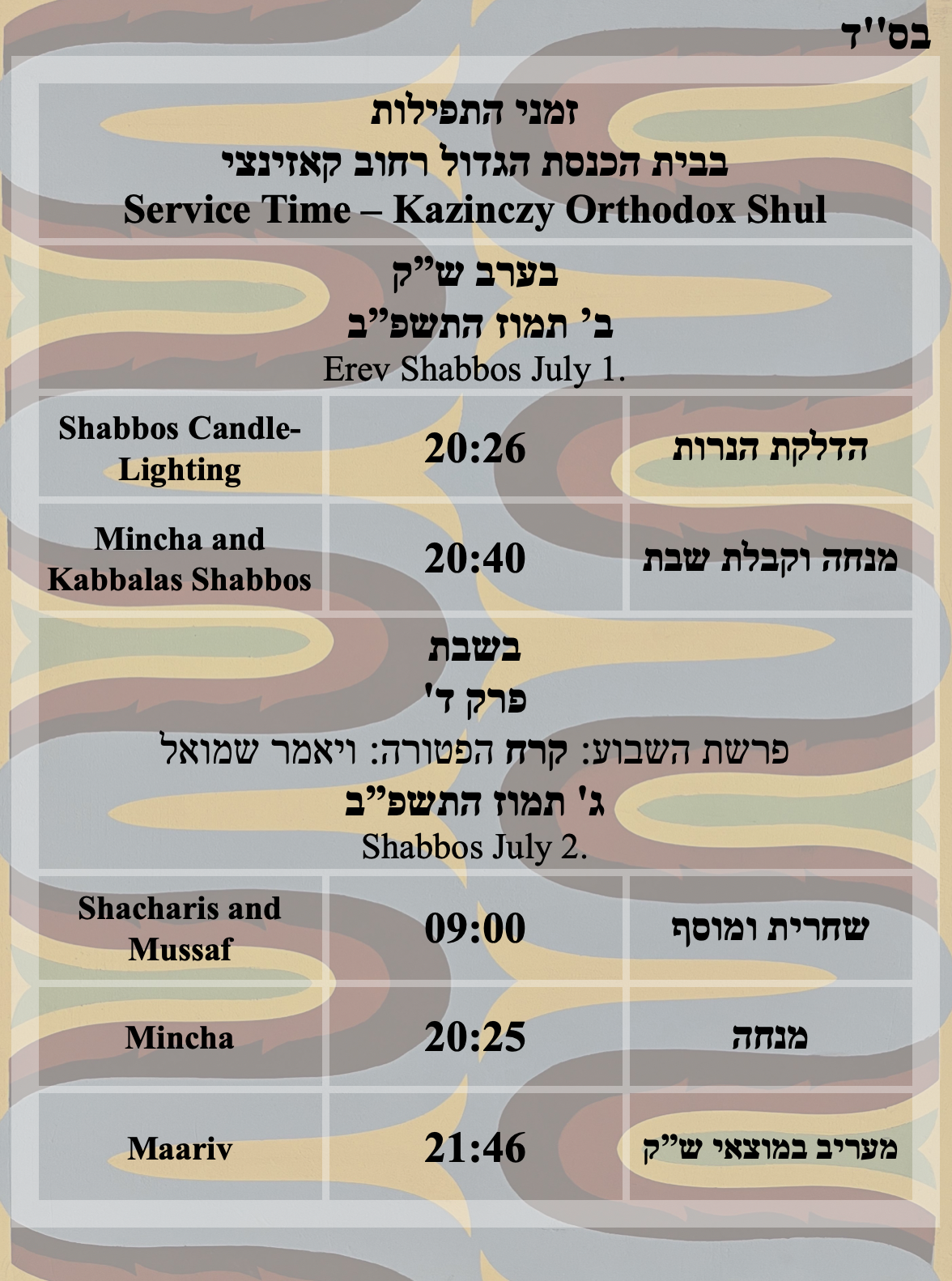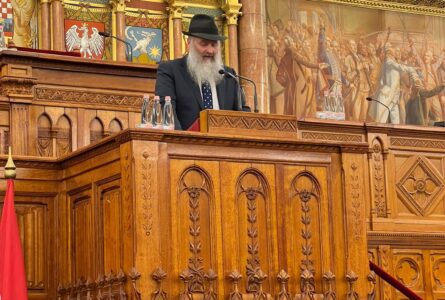Párását Korách – Parashat Korach
„Hallotta Mózes és leborult arcára.” (4Mózes 16:4.) – Miért borult arcra Mózes? Úgy áll a Talmudban (Maéd kotn traktátus 17. lap), hogy minden hely, hová bölcsek – chász vösolem – haragos szemmel tekintenek, ott halál vagy pusztulás lesz. Majse Rábénu abban bízott, hogy a zsidók megbánják tettüket és jó útra térnek. Ezért nem akarta megbüntetni, elpusztítani őket, éppen ezért arcra borult, hogy ne kelljen rájuk pillantania, életben maradhassanak és tsuvát csinálhassanak (Tiferesz Jajneszn).
„Kevés-e, hogy felhoztál bennünket egy tejjel-mézzel folyó országból, hogy megölj bennünket a pusztában, hogy még úrnak is fölveted magadat fölöttünk?” (4Mózes 16:13.) – Hogy miért csak Doszon és Ávirám mondták ezt, és nem Kajrách? Kajrách ugyanis Lévi törzséből való volt, őrájuk pedig nem vonatkozott a végzés, hogy a sivatagban kell elpusztulniuk, – „hogy megölj bennünket a pusztában”. Ezért ezzel Kajrách nem vádolhatta Mózest, nem így Doszon és Ávirám, akik Reuvén törzséből valók voltak (Ködüsesz Lévi).
„Nem is tejjel-mézzel folyó országba vittél bennünket, hogy adtál volna nekünk mező- és szőlő birtokot; vajon ama férfiak szemeit akarod-e kiszúrni? Nem megyünk föl!” (4Mózes 16:14.) – Az emberek látták Mózes arcán az Örökkévaló fényét így tudhatták, hogy a Teremtő emelte őt föl, és tette a gyülekezet vezetőjének. Hogy kérdezhették hát azt: „[…] miért emelkedtek hát az Örökkévaló gyülekezete fölé?” (uo. 16:3.)
Mózes egy kendőt viselt az arcán, hogy elrejtse az Teremtő fényét, hogy az emberek ne lássák, ne tapasztalják óriási nagyságát, ezért tudták ellene szítani a gyülekezetet. Ez az, amit mondtak, Doszon és Ávirám: „[…] a férfiak szemeit akarod-e kiszúrni?” Ha le is veszed a kendőt arcodról, és a fény kiszúrja szemünket, ez sem érdekel. Úgy, ahogy a Talmud írja (Éruvin traktátus 19. lap): „A gonoszok még a gehenem kapujában sem csinálnak tsuvát” – még ott sem térnek meg. Mikor a teljes igazságot látják, még akkor sem „csinálnak tsuvát” – fordulnak vissza (a Szfász Emesz nevében).
Gut sábesz, Paskesz Zev

In parashat Korach we learn of the evils of machines, arguments and disputes. Korach initiated a popular movement for the reallocation of spiritual privileges and responsibilities. In this, we see the archetypal example of undesirable disputes.
The Mishnah in Pirkei Avos. “Any machlokes (dispute) which is for the sake of Heaven will endure, whereas a machlokes which isn’t for the sake of Heaven will not endure. Which is a machlokes that is for the sake of Heaven?
That of Hillel and Shammai. Which isn’t for the sake of Heaven?
The machlokes of Korach and his followers. “In a genuine, machlokes for the sake of Heaven both sides are true. Of course, for the purpose of uniformity in halachah, we will have to choose one opinion. This will generally be based on selecting the opinion which appears to us to have a slight edge.”
The Malbim explains that in any machlokes which isn’t for the sake of Heaven the participants are motivated by personal interests and desires rather than by a desire for the truth.
“And Korach took […]” Rashi explains that Korach “took” himself apart from the others. He was following his own desires, involved with his own ego. Such the nature of everyone in his camp.
It was clearly manifested in their willingness to proceed with Moshe Rabbeinu test. They would all present incense, and only one person could emerge alive. Each was willing to sacrifice the lives of the others for each was following his separation interests. In the end , this was their downfall.
They achieved the maximum separation from the nation – being swallowed up into the ground. Parasht Korach stands as a testimony to the fatal evils of unfounded disputes. Today thousands of years after the halachah was ruled in favour of Hillel, we still diligently study the words of Shammai. “For they are both the words of the Living God.” (Eruvin)
Shabbat Shalom, Sharon Paskesz

